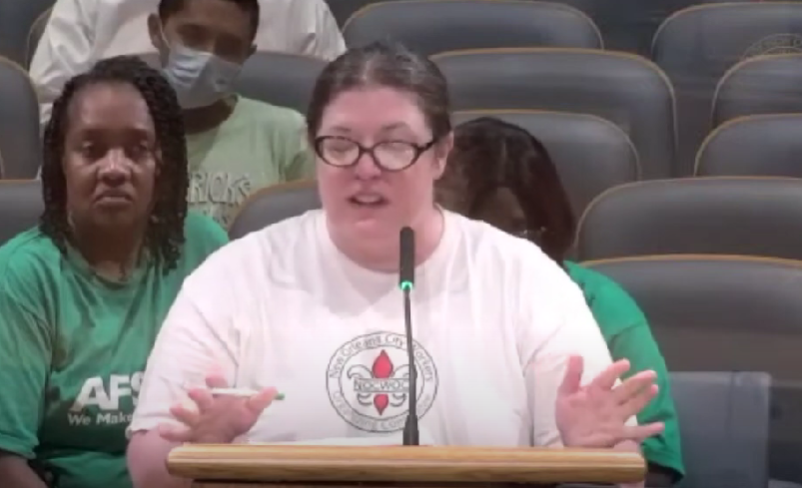Collective bargaining is limited under Louisiana law, but that has not stopped unions like AFSCME from pushing for collective bargaining in New Orleans.
News broke last week that New Orleans’ City Council unanimously passed an ordinance which forces the mayor’s office to meet with union representatives to negotiate collective bargaining agreements, requires the city council to hire a labor relations administrator to be a liaison between the public employees and the city, and includes binding arbitration.
Union supporters swamped the City Council meeting, where “many workers cheered the ordinance, rising one by one to speak in support of it” and “donned T-shirts emblazoned with the logos” of public unions.
While New Orleans Mayor LaToya Cantrell has the opportunity to veto the ordinance, she is not expected to.
The Louisiana chapter of the American Federation of State, County and Municipal Employees (AFSCME), which claims to represent 300 public employees out of 4,000 total public employees in the city of New Orleans, called it a major victory for unions.
Lloyd Permaul, executive director of Louisiana’s AFSCME chapter, said that the city ordinance’s passage “is huge, it’s significant, it’s history.”
The ordinance heavily favors union activities within government workplaces. For example, it states that the city’s public employees can use government email to “discuss employee organization business or activities, or employee organizing activity” —in other words, they can use government resources to conduct union business on the taxpayer dime.
The ordinance also will create a new position titled “Labor Relations Administrator.” The administrator would have the power to act as an arbitrator or judge in the city’s labor matters, such as ratifying card checks, holding and conducting union certification or decertification elections, holding hearings, examining witnesses and documents, and issuing subpoenas.
The position will not be directly paid for by the city government or any unions that represent New Orleans public employees but could be paid by a union that does not represent New Orleans public employees, which raises conflict-of-interest concerns.
One concern is that by paying the administrator’s salary, an outside organization or union could sway the administrator’s decision-making and call into question whether the administrator would fairly represent the interests of the city and public employees. Another concern is that the administrator’s correspondence may not be subject to open records laws, which means there could be little transparency or accountability.
According to local media, the city ordinance will take effect in January 2024.
